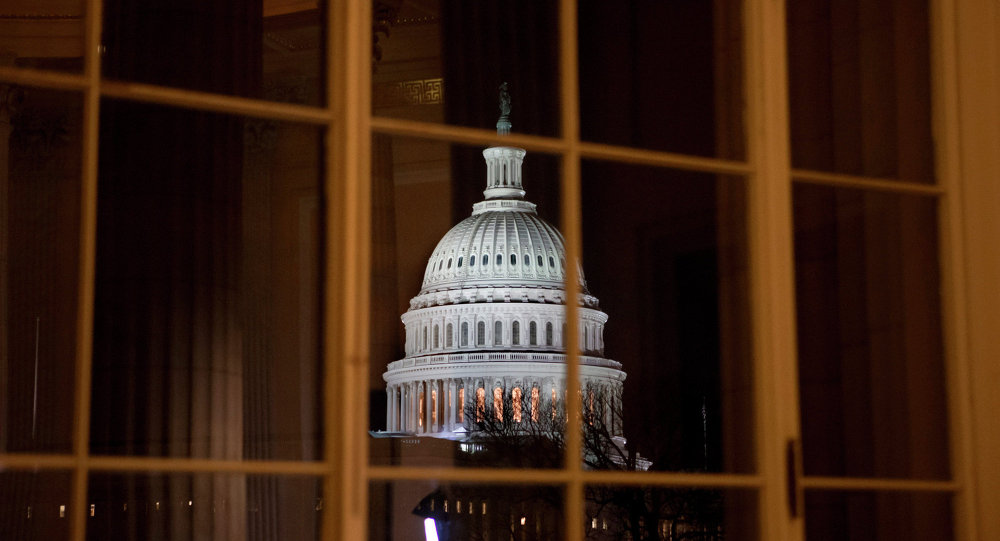Syrian sanctions blocked over shutdown
January 10, 2019 | Expert Insights

The US Senate Democrats have blocked the action on the new Syrian sanctions bill. They said they would not vote to consider the penalties until the chamber takes up legislation to open the closed government agencies.
Background
The US government has imposed a series of sanctions on Syria. Many of these sanctions include legislatively mandated penalties, export sanctions and ineligibility to receive most forms of U.S. aid or to purchase U.S. military equipment.
In May 2004, a comprehensive set of economic sanctions were enacted under the Bush administration. The sanctions banned the majority of exports to Syria except those including food and medicine, explicitly prohibiting the export of goods containing more than 10 per cent of U.S.-manufactured parts to Syria. In 2010, President Obama renewed these sanctions. In 2006, sanctions were enacted against the Commercial Bank of Syria. As a result, it stopped U.S. banks and subsidiaries from maintaining corresponding accounts with the Commercial Bank of Syria. Later in 2011, new sanctions that were imposed froze all assets of the Government of Syria and prohibited U.S. persons from engaging in any transaction involving the Government of Syria.
The 2018-2019 Federal Government shutdown began on 22 December 2018 when the President refused to sign a continuing bill to fund the government. The bill did not contain any allocations for a border wall with Mexico, which was one of his campaign promises.
Analysis
As an effort to force the government to reopen, the US Senate Democrats have blocked the action on the new Syrian sanctions bill.
These sanctions are part of a package of security-related bills, introduced by Florida Republican Marco Rubio and supported by Senate Majority Leader Mitch McConnell. This is the Senate Republican’s first bill of the new Congress. This would impose sanctions on entities that do business with the government of Syrian President Bashar al-Assad, regarding selling petroleum products and aircrafts parts.
This action comes after President Trump’s sudden decision to withdraw 2,000 American troops from Syria, bringing an abrupt end to a military campaign that mostly vanquished the Islamic State. Many lawmakers, including prominent Senate Republicans, opposed Trump’s declaration of victory over the Islamic State in Syria and the decision to withdraw U.S. troops. Former Defence Secretary James Mattis resigned shortly after the announcement.
This movement to oppose the bills began when Maryland Senator Chris Van Hollen tweeted about how the Senate Democrats should block consideration of any other legislation until McConnell of Kentucky allowed a vote on the bills passed by the House to open the government. Though the package was initially backed and gained support, it is now being stalled with a vote of 56-44, not enough to clear the 60-vote hurdle needed to advance.
Mr. McConnell said that "America’s vital interests in the Middle East have been challenged by chaos" and that the package of legislation would allow the Congress to address "all of this head on." Despite the partial government shutdown, it has not affected three-quarters of the government, including the Department of Defence and the Postal Service, which have secure funding. However, 800,000 employees from the departments of Homeland Security and Transportation, among others, are working without pay.
Recently, the US President Donald Trump made a case for a wall on the border with Mexico in a televised address. He said that the situation is a "humanitarian crisis - a crisis of the heart and a crisis of the soul". President Trump urged the Democrats to return to the White House to meet for talks. He said that it was "immoral" for "politicians to do nothing". In a rebuttal, Nancy Pelosi and Chuck Schumer said the president "has appealed to fear, not facts".
Counterpoint
Some congressional Republicans have also voiced their opposition to the use of an emergency declaration and to the use of military funding to build a wall on the southern border. Senator John Cornyn of Texas said the declaration "should be an extraordinary exception" and Representative Mac Thornberry, the top Republican on the House Armed Services Committee, said using military funds for the wall "will be damaging."
National Security Adviser John Bolton also said that American forces would remain in Syria until Islamic State is defeated.
Assessment
Our assessment is that the sudden announcement by President Trump has indeed caused confusion and criticism from allies and adversaries alike. We believe that suspending essential public services for the purpose of scoring political brownies may not be a responsible course of action for any government.








Comments